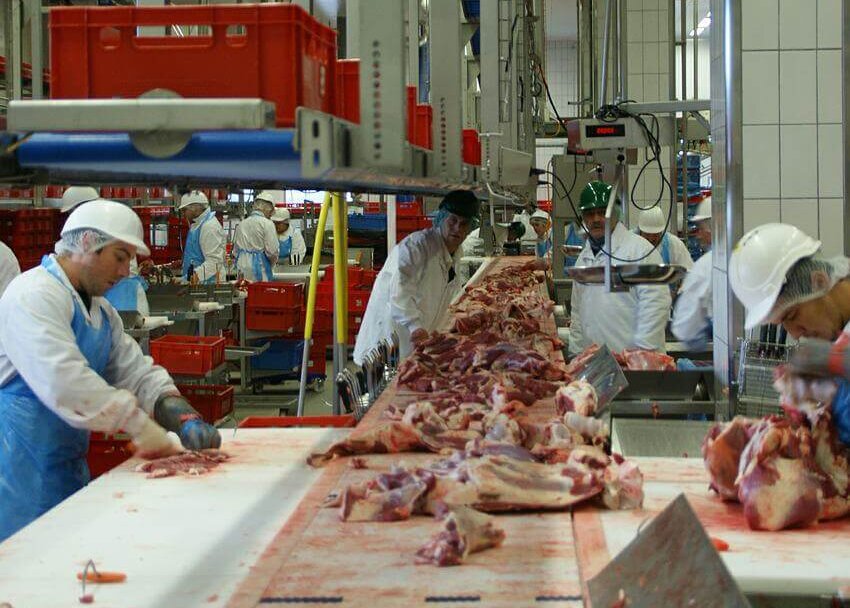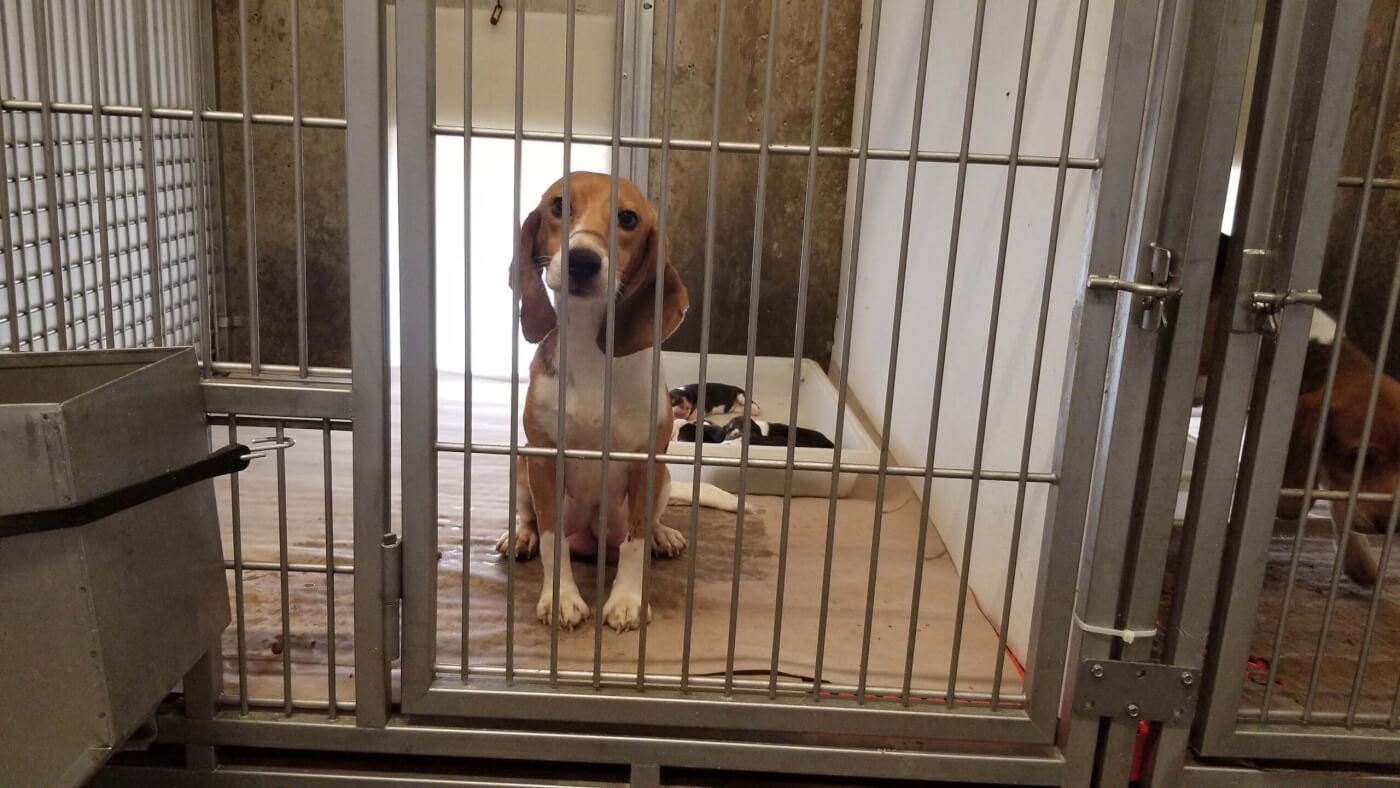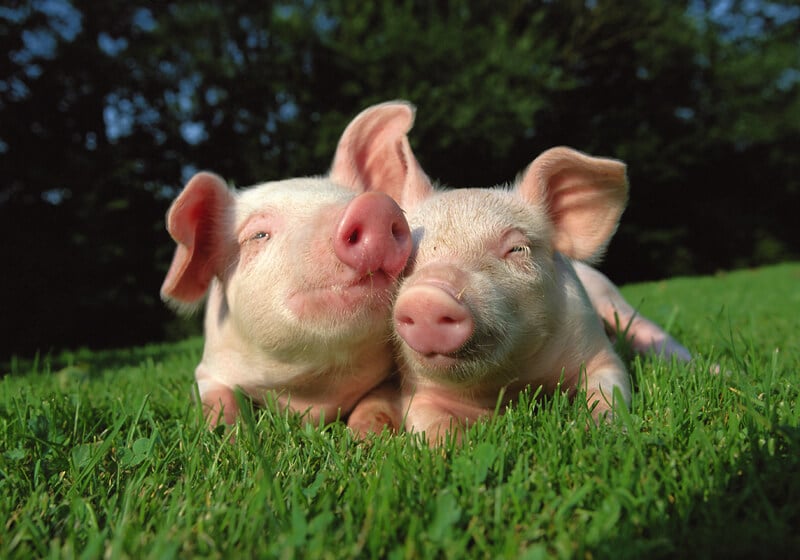
Factory Farming Is a Human Rights Issue, Too
Animals exploited for their flesh and skin are subjected to almost unbelievable horrors in abattoirs. They’re tormented and butchered and often scalded to death or dismembered while they’re still conscious.
When we witness cruelty to animals on factory farms or in abattoirs, it’s easy to lay blame on the workers. However, we need to consider that the meat and animal-skin industries don’t protect human rights, either. Within these systems of human oppression, cruelty to animals flourishes.

Dangerous Conditions and Minimum Wages
The Australian meat industry has a “labour deficit epidemic”, and it’s not hard to see why. The hours are long, the pay is dismal, and the job is onerous, both physically and mentally. Knives, electrified water, and grinders are all used at reckless speeds in order to maximise production. The rate of injury and illness for workers in the meat industry is four times the national average.
Abattoir workers also deal with extreme temperatures, which puts them at heightened risk of frostbite and hypothermia. They’re exposed to harsh chemicals and bacteria, and they’re prone to noise-induced hearing loss and musculoskeletal disorders such as carpal tunnel syndrome.
Because of these terrible conditions, Australia’s meat-processing industry relies heavily on migrant workers, which it exploits. In 2021, The Age revealed that Pacific island workers employed at a Victorian abattoir were taking home little more than $9 an hour, after hundreds of dollars had been deducted from their weekly pay to cover airfares, visas, phone plans, housing, and furniture rentals.
There have also been reports of recruitment syndicates charging individual migrant workers from China $70,000 or more for a job, with promises of future permanent residency.
Mental Health
The dangers of working in an abattoir or on a factory farm are psychological as well as physical.
“Perpetration-induced traumatic stress” is the term used to refer to symptoms of post-traumatic stress disorder experienced by abattoir workers, which include depression and suicidal thoughts. Australian research found that aggression levels among such workers were so high that they were “similar to some reported for incarcerated populations”.
As the saying goes, hurt people hurt people. Those who spend their days killing and dismembering animals necessarily become desensitised to violence, making them more likely to commit violence outside the abattoir, too. Academic studies have shown that in communities where abattoirs are a source of employment, rates of domestic violence, rape, and child abuse are high.
How to Help
If you can’t bear the thought of what’s happening to animals and workers inside abattoirs, don’t support the meat or animal-skin industries. We can help you make kinder choices. Click the link below to get started.
Animals Are Suffering in Laboratories – Help Save Them Now



